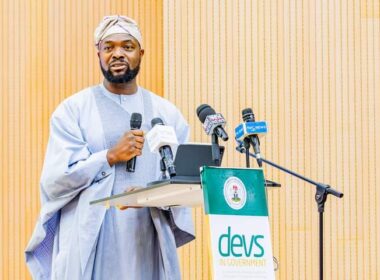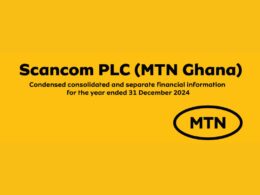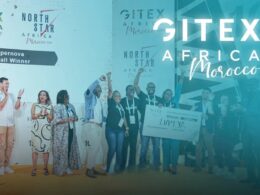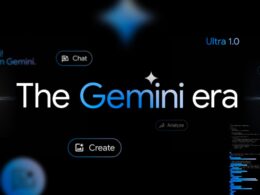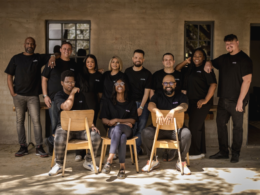Africa’s Web3 ecosystem is expanding fast, but its talent story still skews heavily male. Across meetups, hackathons, and developer cohorts, women rarely exceed 15 percent of participants, and in some technical tracks, they are barely represented at all.
Compared to Europe and the United States, where women-focused crypto communities, structured mentorship pipelines, and gender-inclusive funding initiatives have gained momentum, Africa’s inclusion gap is wider.
Barriers like limited technical training, fewer visible role models, and entrenched biases in STEM mean African women face a steeper climb into Web3 than their counterparts in more mature markets.
A new wave of believers is rising.
In spite of these challenges, interest among African women is slowly growing. While Western markets now benefit from well-established blockchain communities and VC programmes designed to support female founders, Africa is still playing catch-up.
This is why Web3 believers like Progress Ochuko Eyaadah matter so much. Her journey into blockchain did not begin with a whitepaper or a crypto bull run. It was born out of both curiosity and conviction to be among the few women breaking barriers in the otherwise male-dominated space. It started with a simple question: “What is Web3?”
That curiosity pulled her into engineering, education, and community development, eventually positioning her as one of Africa’s most influential female voices in Web3 adoption.
“For many women, the challenge isn’t interest,” she explains. “It’s exposure. If you’ve never seen someone who looks like you working in Web3, it’s hard to imagine yourself there.”
From Community Member to DevRel Leader
Progress entered the blockchain space as a learner in the Women in DeFi community, a space created to demystify decentralised technologies for African women.
“At the time, everything felt too technical, too abstract, too distant,” she recalls. “I wanted to understand blockchain beyond the noise.” And she didn’t just understand it, she mastered it.
Within a few months, her technical depth, discipline, and natural instinct for teaching made her stand out. She rose quickly through the community, eventually becoming Lead Developer Relations, where she designed beginner-friendly learning roadmaps, ran hands-on technical workshops, mentored women in smart-contract engineering, and built inclusive pathways into Web3 careers.
Her mentorship transformed Women in DeFi into one of the most effective entry points for African women exploring blockchain. “Progress has a unique ability to take complex ideas and make them feel simple,” one of her mentees says. “She makes the space feel possible.”
Shaping Global Ecosystems From West Africa
Progress’s work is not limited to local communities; she also plays a significant global role within the Stellar ecosystem. As a Developer Relations for Stellar West Africa, a Category Delegate and an official Technical Reviewer for the Stellar organisation, working directly with Stellar Development Foundation (SDF), she occupies multiple positions that shape how developers across the region engage with Stellar’s technology and funding pipelines.
In these roles, Progress reviews and votes technical submissions from global teams, evaluates project quality and ecosystem alignment, supports developers building on Stellar globally, and guides early-stage blockchain teams as they navigate funding and proposal processes. Her presence ensures that African developers not only participate in but also have a visible and influential place in global Web3 conversations.
Creating Accessible On-Ramps for Women in Blockchain
Across conferences, workshops, hackathons, and virtual learning series, Progress is building what many women still lack in Web3: safe, structured access to technical skills.
She has spoken at ChainConnect’s Web3 Entry Series, served as a panellist at Nigeria Blockchain & AI Week, participated in “Demystifying Blockchain” sessions and other women-focused tech discussions, and contributed to numerous educational programs across African developer communities.
Her teaching style is intentional, inclusive, human, and grounded in real-world use cases rather than hype. “Women don’t need hype to enter Web3,” she says. “They need clarity, support, and a path.” And through her mentorship and hands-on workshops, hundreds of women have now written their first smart contract, deployed their first DApp, or stepped into their first blockchain engineering roles.
Web3 promises openness, transparency, and decentralisation, but without inclusive education, those principles remain ideals rather than realities.
Progress understands that for African women, the barriers are layered; access comes first, community comes next, and representation is the third and often most overlooked challenge.
Her work addresses all three simultaneously. She is part of a generation of African technologists ensuring that blockchain adoption is not just fast but fair, not just global but inclusive, and not just innovative but genuinely empowering.
Coding Inclusion, One Woman at a Time
Progress Ochuko Eyaadah’s story is not just about blockchain; it is about access, courage, and the power of representation.
In an industry where women remain massively underrepresented, she is making Web3 feel less like a gate-kept technology and more like an open invitation. Through every workshop she leads, every mentorship call she takes, and every African woman she brings into the space, she is slowly and intentionally reshaping the face of Web3.



